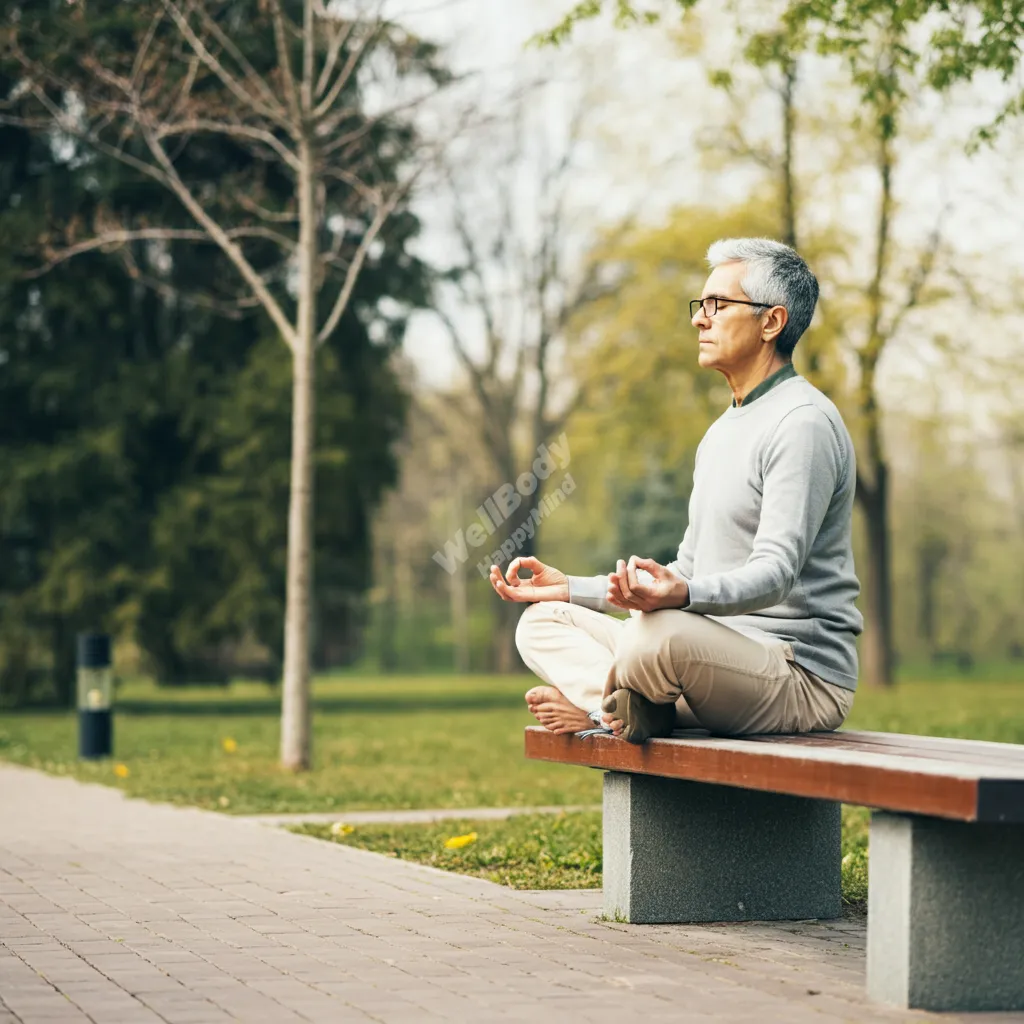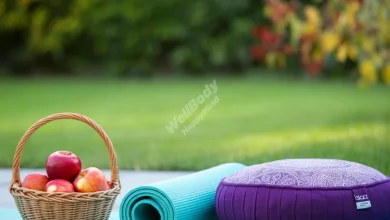Holistic Wellness: Align with Your Body’s Natural Rhythms

Have you ever felt out of sync with your body? Like you’re fighting an uphill battle against fatigue, stress, or illness? It’s time to tune into the natural rhythms of your body and embrace a holistic wellness approach.
Holistic wellness isn’t just a buzzword. It’s a way of life that can transform your health. This approach sees your body, mind, and spirit as interconnected parts of a whole. When one part is off, it affects everything else.
In this post, we’ll explore how to tap into your body’s natural rhythms. We’ll show you how to create a balanced, healthy lifestyle that nurtures all aspects of your being.
Understanding the Holistic Approach to Health
What is holistic health?
Holistic health is about looking at the big picture of your wellbeing. It’s not just about treating symptoms. It’s about finding and fixing the root causes of health issues.
This approach considers:
- Your physical health
- Your mental state
- Your emotional wellbeing
- Your spiritual needs
- Your social connections
When these areas are in balance, you’re more likely to feel vibrant and healthy.
The pillars of holistic wellness
- Nutrition
- Exercise
- Sleep
- Stress management
- Emotional balance
- Social connections
- Spiritual or personal growth
Benefits of adopting a holistic lifestyle
- Improved overall health: By addressing all aspects of your life, you can achieve better health outcomes.
- Increased energy: When your body systems are in balance, you often feel more energetic.
- Better stress management: Holistic practices can help you cope with stress more effectively.
- Enhanced mental clarity: A balanced lifestyle can lead to improved focus and mental performance.
- Greater sense of purpose: Addressing spiritual or personal growth can give you a stronger sense of meaning in life.
By embracing a holistic approach, you’re not just treating health issues. You’re creating a foundation for lasting wellness.
The Body’s Natural Rhythms
Your body has its own internal clock. Understanding these natural rhythms can help you optimize your health and energy levels.
Circadian rhythms and their impact on health
Circadian rhythms are your body’s 24-hour cycles. They affect:
- Sleep patterns
- Hormone release
- Body temperature
- Metabolism
When you align your daily activities with these rhythms, you can:
- Improve sleep quality
- Boost energy levels
- Enhance mental clarity
- Support better digestion
Tip: Try to wake up and go to sleep at consistent times, even on weekends.

Seasonal rhythms and wellness
Just as nature changes with the seasons, so does your body. Each season brings different:
- Energy levels
- Food cravings
- Exercise needs
- Mood tendencies
Embracing seasonal changes can help you maintain balance year-round. For example, you might need more rest in winter and feel more energetic in spring.
Hormonal cycles and their influence on well-being
Hormones play a crucial role in your overall health. They affect:
- Mood
- Energy
- Appetite
- Stress levels
Understanding your hormonal cycles can help you:
- Plan activities more effectively
- Manage stress better
- Optimize your diet and exercise routines
Nutrition: Fueling Your Body Holistically
What you eat doesn’t just affect your waistline. It impacts your entire well-being.
Whole foods and their importance
Whole foods are foods that are minimally processed. They include:
- Fruits and vegetables
- Whole grains
- Lean proteins
- Healthy fats
These foods provide:
- Essential nutrients
- Fiber for gut health
- Antioxidants for cell protection

Balanced diet principles
A balanced diet includes a variety of foods from all food groups. Here’s a simple guide:
| Food Group | Portion of Your Plate |
|---|---|
| Vegetables | 1/2 |
| Whole Grains | 1/4 |
| Lean Protein | 1/4 |
| Healthy Fats | Small amounts throughout |
Mindful eating practices
Mindful eating isn’t just about what you eat, but how you eat. Try these practices:
- Eat slowly and chew thoroughly
- Pay attention to flavors and textures
- Listen to your body’s hunger and fullness cues
- Avoid distractions like TV while eating
Hydration and its role in overall health
Water is crucial for:
- Regulating body temperature
- Aiding digestion
- Transporting nutrients
- Flushing out toxins
Aim to drink 8-10 glasses of water daily. Your needs may vary based on activity level and climate.
Remember, nourishing your body isn’t just about counting calories. It’s about providing your body with the fuel it needs to thrive.
Movement and Exercise: Finding Your Flow
Exercise isn’t just about burning calories. It’s about celebrating what your body can do and keeping it strong and flexible.
Types of exercise for holistic health
A well-rounded exercise routine includes:
- Cardio (e.g., walking, swimming, cycling)
- Strength training (e.g., weightlifting, bodyweight exercises)
- Flexibility work (e.g., stretching, yoga)
- Balance exercises (e.g., tai chi, standing on one foot)

Incorporating movement into daily life
You don’t need a gym membership to stay active. Try these simple ideas:
- Take the stairs instead of the elevator
- Park farther away from your destination
- Have walking meetings or phone calls
- Do squats while brushing your teeth
- Dance while doing housework
The mind-body connection in exercise
Activities like yoga and tai chi offer more than physical benefits. They can:
- Reduce stress
- Improve focus
- Boost mood
- Enhance body awareness
Remember, the best exercise is the one you enjoy and will stick with!
Sleep and Rest: Restoring Your Body and Mind
Quality sleep is crucial for holistic health. It’s when your body repairs itself and your brain processes information.
The importance of quality sleep
Good sleep:
- Boosts immune function
- Supports mental health
- Improves concentration
- Helps regulate weight
Creating a sleep-friendly environment
To improve your sleep quality:
- Keep your bedroom dark and cool
- Use comfortable bedding
- Limit noise and light exposure
- Remove electronic devices from the bedroom

Relaxation techniques for better rest
Try these techniques to help you unwind:
- Deep breathing exercises
- Progressive muscle relaxation
- Guided imagery
- Gentle stretching before bed
- Reading a calming book
Aim for 7-9 hours of sleep per night. Your body will thank you!
Stress Management: Balancing Your Energy
Stress is a natural part of life, but chronic stress can wreak havoc on your health.
Understanding the impact of stress on health
Prolonged stress can lead to:
- Digestive issues
- Weakened immune system
- Heart problems
- Mental health challenges
Mindfulness and meditation practices
Mindfulness can help you:
- Reduce stress
- Improve focus
- Enhance emotional regulation
Try setting aside 5-10 minutes daily for meditation or mindfulness exercises.
Breathing exercises for stress relief
Here’s a simple breathing technique to try:
- Breathe in deeply through your nose for 4 counts
- Hold your breath for 4 counts
- Exhale slowly through your mouth for 4 counts
- Repeat 5-10 times
This technique, known as box breathing, can help calm your nervous system quickly.

Remember, managing stress isn’t about eliminating it completely. It’s about developing tools to handle it effectively.
Emotional and Mental Well-being
Your emotional health is just as important as your physical health. They’re deeply connected.
The connection between emotions and physical health
Your emotions can affect your body in many ways:
- Stress can cause muscle tension
- Anxiety might lead to digestive issues
- Depression can impact sleep and appetite
Conversely, taking care of your physical health can boost your mood and emotional resilience.
Practices for emotional balance
Try these strategies to nurture your emotional health:
- Journaling: Write down your thoughts and feelings
- Gratitude practice: List three things you’re thankful for daily
- Cognitive reframing: Challenge negative thought patterns
- Creative expression: Try art, music, or dance
- Therapy or counseling: Seek professional support when needed
The role of social connections in holistic health
Strong social ties can:
- Reduce stress
- Boost mood
- Improve cognitive function
- Even strengthen your immune system
Make time to connect with loved ones regularly, whether in person or virtually.

Natural Healing Modalities
While traditional medicine has its place, natural healing practices can complement your wellness routine.
Overview of complementary therapies
Some popular options include:
- Acupuncture
- Massage therapy
- Chiropractic care
- Aromatherapy
- Herbal medicine
Herbal remedies and their uses
Here’s a brief table of common herbs and their potential benefits:
| Herb | Potential Benefits |
|---|---|
| Chamomile | Calming, aids sleep |
| Ginger | Digestive aid, anti-inflammatory |
| Turmeric | Anti-inflammatory, antioxidant |
| Echinacea | Immune support |
Always consult a healthcare professional before starting any new treatment or supplement regimen.

Creating Your Holistic Health Routine
Now that we’ve explored various aspects of holistic health, let’s put it all together.
Assessing your current lifestyle
Take some time to reflect on your current habits:
- How’s your diet?
- Are you getting enough sleep?
- How do you manage stress?
- Are you moving your body regularly?
Setting realistic goals for holistic wellness
Start small and build from there. For example:
- Add one serving of vegetables to your daily diet
- Meditate for 5 minutes each morning
- Take a 15-minute walk during your lunch break
Tips for maintaining consistency
- Start with small, achievable goals
- Track your progress
- Celebrate small wins
- Be patient with yourself
- Adjust your plan as needed
Remember, holistic health is a journey, not a destination.
Conclusion
Embracing a holistic wellness approach isn’t about perfection. It’s about creating a lifestyle that honors the interconnectedness of your mind, body, and spirit.
By tuning into your body’s natural rhythms, nourishing yourself with whole foods, moving your body, prioritizing rest, managing stress, and nurturing your emotional health, you’re creating a foundation for lasting wellness.
Remember, every small step counts. Start where you are, use what you have, and do what you can. Your body has an incredible capacity for healing and balance when given the right support.
Are you ready to embark on your holistic health journey? Start by choosing one area to focus on this week. Listen to your body, honor its rhythms, and watch as your overall well-being begins to flourish.
Your path to vibrant health starts now. What will your first step be?




